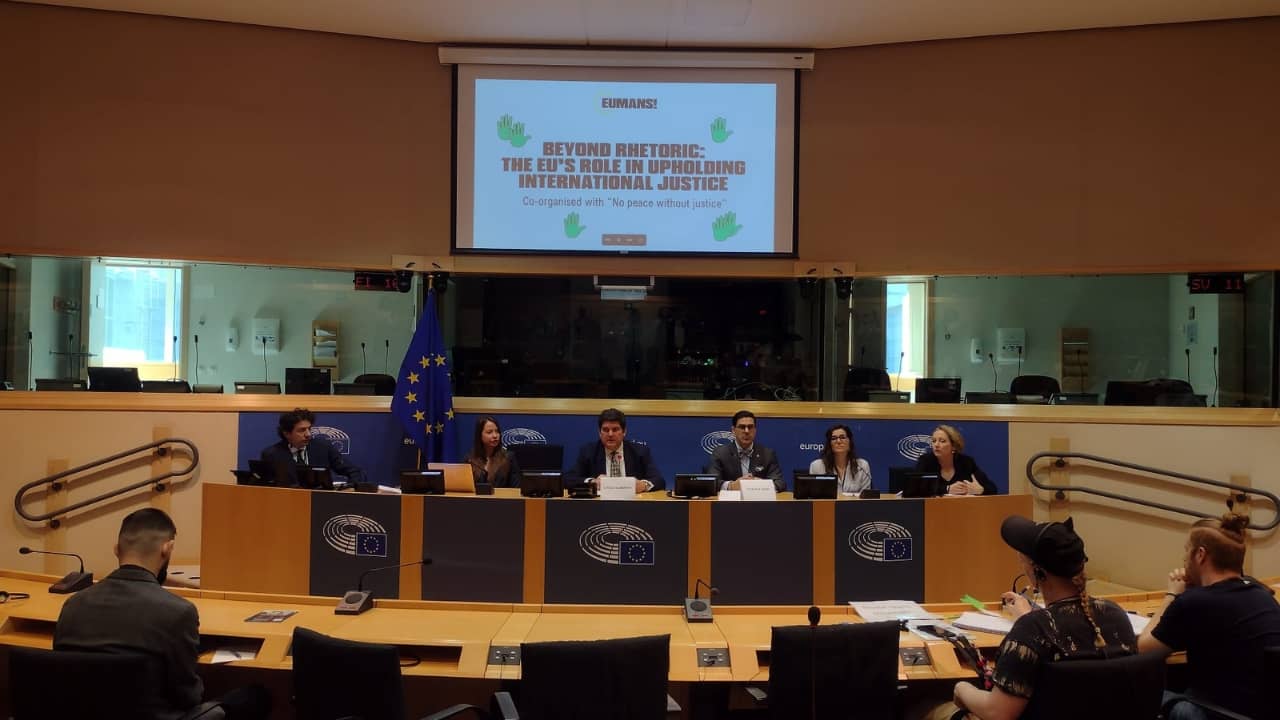We, the undersigned members of parliaments worldwide, stand united in our individual capacities in unwavering support of the International Criminal Court (ICC). As representatives of our respective citizens, we are bestowed with the fundamental responsibility to uphold the principles of democracy, justice, accountability, and the rule of law – a responsibility that transcends borders and unites us in a shared humanity.
The ICC was established by the Rome Statute – adopted on 17 July 1998 and entered into force on 1 July 2002 – continuing the Nuremberg legacy and the collective vow to “never again.” In a world jeopardized by atrocity crimes, it serves as the world’s only permanent international criminal court with the mandate to prosecute individuals responsible for the most serious crimes of concern to the international community, i.e., the crime of genocide, crimes against humanity, war crimes, and the crime of aggression.
The principle of complementarity underpins the Court’s vital role. It complements national judicial systems, stepping in only when States are unable or unwilling to genuinely investigate and prosecute these heinous crimes. Therefore, the Court is not meant to replace national judicial investigations, but serves as a safety net to render justice that would have not been achieved otherwise. This ensures accountability for the perpetrators and justice for victims, deters future atrocities, and fosters lasting peace and the rule of law.
However, the ICC continues to face unprecedented challenges. Any threat, political pressure or sanction levied against the Court and its officials represents a direct attack on the very principles of international justice and its foundations, including its integrity. We, parliamentarians, have a critical role to play at this juncture, and we must stand firm in our collective defense of the ICC’s independence and impartiality to ensure that it has the capacity to carry out its functions within the framework of its mandate, rendering justice where domestic systems fail to do so.
The ICC’s independence, integrity and impartiality are paramount. Any attempts to intimidate the Court and interfere with the independence of its investigations and prosecutions based on political or other considerations undermine its legitimacy and jeopardize the efficiency and effectiveness of its mandate. Justice must be fair, built on equality and full respect of the rule of law and standards of international criminal justice. The ICC must have the freedom to pursue investigations independently, impartially and conscientiously, wherever the evidence leads. No individual, regardless of power or position, stands above the law.
Therefore, we urge all members of parliaments to:
- Sign this declaration in a powerful demonstration of global solidarity with the ICC.
- Advocate within your national parliaments for unwavering support of the ICC, including ensuring that your government fulfills its financial obligations, continued cooperation with the Court, and full implementation of the Rome Statute.
- Champion the ratification of the Rome Statute and all its amendments by those States that have yet to do so – the larger the Rome Statute system is, the more powerful it becomes.
The recent threats against the ICC stress the urgency of our action. Let us stand together as parliamentarians, champions of justice, and representatives of the people who aspire for a world where the perpetrators of the gravest crimes are held accountable and the rule of law and the rule of international justice prevail. The International Criminal Court embodies the collective conscience of humanity. Let us ensure it remains a powerful symbol of hope and a cornerstone of a just and peaceful world order.




